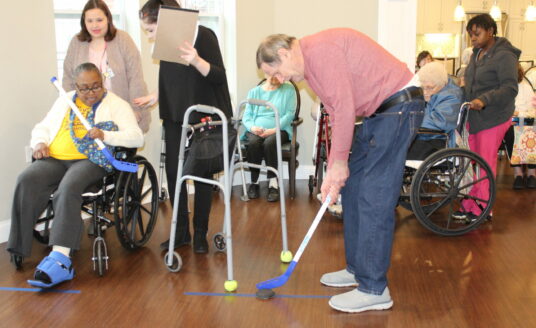When Presidential candidates dare to talk about shoring up Social Security, they typically say that people 50 and older shoudln’t worry — their benefits won’t be reduced to keep the system solvent. But Boomers aren’t buying it.
In fact, based on two recent surveys from the Hearts & Wallets financial services research firm, and Transamerica Center for Retirement Studies, workers in their 50s and 60s, as well as retirees, are increasingly worried that their Social Security retirement benefits might be cut just when they’re counting on them.
The Government “Can Change Anything”

Credit: Thinkstock
“I’m a Gen X’er and I don’t think the Boomers’ fears are overstated,” said Laura Varas, a principal at Hearts & Wallets. “The government can change anything at any time.”
The Hearts and Wallets survey, Investor Mindset: Attitudes, Concerns, Beliefs & Goals, asked 5,365 U.S. households whether they agreed with this statement: “I feel confident I’ll receive the Social Security benefits promised me.” The results: 51 percent of pre-retirees (households whose primary breadwinner plans to retire within five years) and 51 percent of post-retirees (ones where the primary breadwinner has stopped working full-time) felt confident about getting their promised Social Security benefits.
That’s down from 53 percent and 55 percent a year ago, respectively. Overall, just 37 percent of U.S. households felt confident they’d get the Social Security they’re due, down from 39 percent in 2014.
“We’re hearing more about this concern lately,” said Varas. “We’ve also been doing focus groups with older investors and are hearing a lot about their concern that Social Security might be means-tested [reducing and perhaps eliminating the retirement benefits for high-income recipients]. Higher-income people are the ones who’ve paid the most into Social Security.”
When Transamerica asked 4,203 retirees and workers age 50 and older for their greatest fears about retirement in The Current State of Retirement: Pre-Retiree Expectations and Retiree Realities, 44 percent of retirees and 33 percent of workers 50 years and older said their number one fear was that “Social Security will be reduced or cease to exist in the future.”
This fear was also tied into the fear of “declining health that requires long-term care.” Among the pre-retirees, the Social Security fear was number three after “outliving my savings and investments” and “declining health that requires long-term care.”
This finding echoes an earlier Transamerica survey, where 76 percent of workers in their 50s and 40 percent of workers in their 60s said “I am concerned that when I am ready to retire, Social Security will not be there for me.”
Primary Source of Retirement Income
A key reason the chance of a Social Security benefit cut is so scary to pre-retirees is that many expect Social Security to be their primary source of retirement income. 61 percent of retirees and 37 percent of workers aged 50 plus believe so, according to Transamerica. In 2007, just 26 percent of Boomers expected Social Security to be their primary source of retirement income.
“If something happens [to retirees’ Social Security benefits], they won’t be in a position where they can readily pick up and go find employment,” said Catherine Collinson, president of the Transamerica Center for Retirement Studies.
Why are so many more Boomers now anticipating being so Social Security dependent? “Many are encountering potential saving shortfalls as retirement age nears,” said Collinson. “Many are also still recovering from financial setbacks encountered during the Great Recession.”
The Recent Backroom Deal Over Social Security
It must be noted that both of these surveys were conducted before October’s backroom budget deal by Congress and President Obama that reduced Social Security benefits by tens of thousands of dollars for some Boomer couples.
With no notice or public discussion, the politicians limited the “file and suspend” strategy for everyone who will be younger than 66 by the end of April 2015. They’ve also eliminated a way to claim spousal benefits for people who’ll be under 62 by the end of 2015. Their explanation: “loophole closing.”
Incidentally, Social Security’s chief actuary told Congress that these claiming strategy restrictions will have no effect on when the Social Security trust fund will be depleted. That date is now anticipated to happen in 2034.
Said Varas, “We heard about [the file and suspend change] in almost every one of our recent focus groups. It would have been better to give people two or three years of warning. Having the rug pulled out from them really frightened consumers.”
Boomers May Claim Social Security Early
Varas and Collinson think Boomers are growing increasingly worried about their Social Security benefits partly because each year brings us closer to when the Social Security trust fund is estimated to be exhausted. After that exhaustion date, Social Security could pay three-fourths of scheduled benefits.
“We all read the headlines about Social Security’s solvency, and where there is uncertainty, there will be anxiety,” said Collinson.
And Varas thinks the rising skepticism over receiving promised Social Security benefits may lead more people to start claiming Social Security as early as they can, giving up the delayed-retirement credits that increase Social Security 8 percent a year until age 70.
Tools to Help Calculate Benefit Claims
To see how the age you start claiming Social Security will affect how much you’ll receive in benefits — barring any changes from Washington — try out the new free Consumer Financial Protection Bureau’s Planning for Retirement — Before You Claim online calculator. You may not be able to prevent unknowable changes in your promised Social Security benefits, but you can plan for what you’re currently entitled to get.
Related Articles
Scams and Frauds Pose a Serious Threat to Seniors
5 Useful Apps for Senior Living Residents
St. Louis Senior Living Options for the Modern Older Adult
© Twin Cities Public Television – 2016. All rights reserved.
For More Senior Living Tips
Check Out Bethesda’s Blog
| With 133 years of experience, Bethesda has become a leader in senior care, offering independent living, assisted living, memory care, and skilled nursing. To see if memory care is right for your family, tour any of our communities, including Bethesda Dilworth, Bethesda Meadow, Bethesda Southgate, and Bethesda Hawthorne Place. After meeting with our residents and highly trained staff, you will instantly feel at home. |
Want to find out more?
If you’d like to stay up to date with Bethesda Health Group, sign up here to receive our blog and newsletters!
"*" indicates required fields
Related Articles
Want to find out more?
If you’d like to stay up to date with Bethesda Health Group, sign up here to receive our blog and newsletters!
"*" indicates required fields



